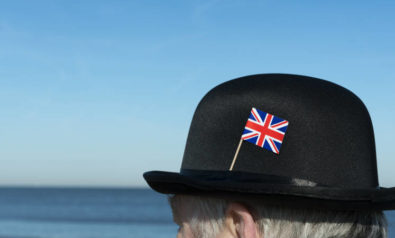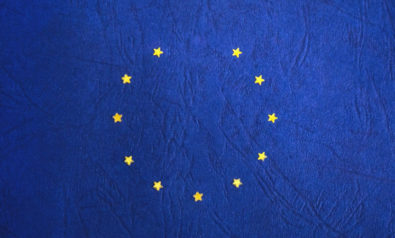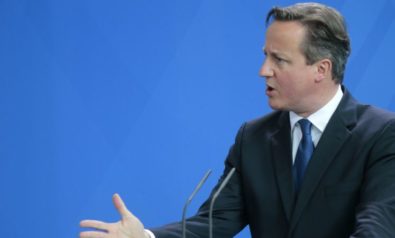Why are voters in the US and the UK abandoning “reality-based” politics? Because the elites who proclaim them abandoned the voters.
It’s the morning after. The British have woken up, dazed and woozy. They’re not exactly sure what happened a few days ago. But one thing is clear: Their political environment is a shambles. Some things are mysteriously missing, like leadership and a whole lot of money ($3 trillion from the stock market). Other things are just as mysteriously present, such as international ridicule.
The poor British have a vague memory that someone might have spiked their drinks at a party last week, someone who looked a lot like Nigel Farage of the United Kingdom Independence Party, and in retrospect it was a very bad idea to have drunk that intoxicating Kool-Aid. Certainly a lot of really stupid things were said. But it’s the really stupid thing that was done that so many people would dearly love to forget ever happened.
And now begins the madcap adventure in which the British try to retrace their steps and figure out how they can either undo all the damage or live uncomfortably with the consequences. Welcome to the British redo of that inexplicably popular 2009 film, The Hangover.
Referendum Reset?
The nation, the French historian Ernest Renan famously said, is a daily plebiscite. He meant that the nation must affirm itself continuously in acts both minor and major. In its recent plebiscite, the UK engaged in a major act of national affirmation: It would henceforth define itself as an ex-EU member. As with many such affirmations—wedding vows, military enlistment, participation in an Iron Man triathlon—at least some Brits are having second thoughts.
Take, for instance, Mandy Suthi, who says that she didn’t expect Prime Minister David Cameron to resign and now regrets her vote for Brexit. On Twitter, others have expressed dismay at the plummeting pound, the misinformation from the Leave campaign and their own dismaying ignorance (see #regrexit). On Google, countless others have decided to learn about the European Union only after the vote. Information at our fingertips has not ultimately made us smarter, it seems. Our intelligence has been uploaded to our phones, where it functions like one of those apps we rarely access.
Even some of the biggest cheerleaders of the campaign—like Sun columnist Kelvin MacKenzie—are now expressing “buyer’s remorse,” even though they were the ones doing the selling. A petition to hold a second referendum is making the rounds—initiated by, of all people, a Leave supporter who had been fearful of an initial close loss. But it’s hard to know how many of the 4-million-plus signatories in the UK (minus all the fraudulent ones from North Korea and Vatican City) either voted to leave or didn’t vote in the first place.
They dismissed the warnings of the “elites”—economists, political experts—as propaganda. They appealed to the worst instincts of the electorate (immigrants are bad, foreign bureaucrats are unconscionable, let’s stick it to the French and Germans whom we never much liked anyway).
The referendum was only advisory, so it’s possible that the British Parliament will ignore the results and opt for a second referendum. Cameron has already announced that he’ll leave the decision to initiate the break with the EU to his successor. No wonder Boris Johnson, the former London mayor and Leave booster who was favored to take over from Cameron, looked rather dyspeptic at what should have been a celebratory news conference. The next prime minister faces the lose-lose proposition of supporting an economic disaster or failing to respect the public will.
This was not a referendum that suffered from low voter turnout. Nearly 75% of eligible voters went to the polls. Nor can anyone complain that the media didn’t highlight the worst-case scenarios, including precisely the results that so flummoxed the second-thoughts camp. And yet millions apparently treated the vote as no more important than choosing the next Britain’s Got Talent winner.
“In dreams begin responsibilities,” wrote the Irish poet W.B. Yeats. Now that the British have woken up from their dream, they’ve discovered the hangover of responsibility—and it doesn’t look pretty.
Elites and Reality
Journalist Ron Suskind reported in The New York Times a now-infamous exchange with an aide to then-President George W. Bush in 2002:
“The aide said that guys like me were ‘in what we call the reality-based community,’ which he defined as people who ‘believe that solutions emerge from your judicious study of discernible reality.’ I nodded and murmured something about enlightenment principles and empiricism. He cut me off. ‘That’s not the way the world really works anymore,’ he continued. ‘We’re an empire now, and when we act, we create our own reality. And while you’re studying that reality — judiciously, as you will — we’ll act again, creating other new realities, which you can study too, and that’s how things will sort out. We’re history’s actors … and you, all of you, will be left to just study what we do.’”
Perhaps 9/11 was the moment when the path of history forked. Those of us who believe in the “judicious study of discernible reality” continued on our way, shaken by the events of that day, but still confident in our reality-based assumptions. The leaders of the US empire, however, went merrily down another path, which led through the looking glass. This group ignored a variety of irrefutable facts—Iraq had no weapons of mass destruction, most of the 9/11 hijackers came from Saudi Arabia, torture doesn’t produce reliable intelligence—in order to create their own reality of the invasion of Afghanistan, the occupation of Iraq and the tortures of Abu Ghraib.
It’s a well-worn path that George W. Bush and Dick Cheney took. “History’s actors” who have followed similar trajectories include such inglorious statesmen as Mao Zedong, Adolf Hitler and Caligula.
The leaders of the Leave campaign also showed considerable contempt for the “reality-based community.” They dismissed the warnings of the “elites”—economists, political experts—as propaganda. They appealed to the worst instincts of the electorate (immigrants are bad, foreign bureaucrats are unconscionable, let’s stick it to the French and Germans whom we never much liked anyway). When all the warnings turned out to be true—and, worse, that the impact of Brexit would hit its supporters the hardest of all—they began to wake from the hangover.
The same holds true for what I’ve called America B, the large group of people who have not benefited from the economic changes of the last 25 years. America B has an innate contempt for the elite because the elite, quite frankly, abandoned them.
Liberal, conservative—it didn’t matter: Virtually all political and economic leaders sided with the 1%. The elite can fact-check Donald Trump’s speeches all they want. His supporters are not interested in such “reality-based” assessments. They’re voting from the spleen. In a year of magical thinking, it’s no surprise that voters are taken with a magician who can pull facts and figures out of unexpected places.
Hillary Clinton is the EU of American politics: stolid, respectable, a little too cozy with vested interests. She and the Democratic Party should be careful to listen to the anger out there in America, or else face a morning after just like Britain’s.
EU Reform
The British hangover is an EU wake-up call. The leadership in Brussels should immediately set to work to make the EU a more responsive institution.
The first task is to give people more of a voice in the workings of the EU. Participation in European Parliament elections is notoriously low. The last election, in May 2014, hit a new low at 42% (down from 62% in 1979). Some countries barely make it to the polls at all (18% in the Czech Republic, 13% in Slovakia).
One set of reforms would be to reduce the costs and increase the transparency of the European Parliament. Much of the price tag for European democracy involves translation into 24 languages. The United Nations only has six official languages: Surely the EU can cut those interpretation bills in half by making fluency in one of 12 languages a requirement for office. The parliament also works in three different places (Strasbourg, Luxembourg and Brussels), which ups the travel and building costs. And members don’t even have to submit receipts for their expenses.
Another set of reforms would encourage a greater sense of European identity by promoting Europe-wide parties. Imagine if voters in Poland and Portugal could vote for the same Social Democratic, Conservative and Green parties, with their own distinct Europe-wide platforms.
One chief criticism of the EU is regulation. Of course, the EU has a committee looking into this. But a more public effort to reduce red tape would improve the EU’s reputation.
I am a big supporter of the free movement of people. And the EU is currently pressing the UK to accept open borders as part of any deal preserving its access to the EU market. Even as it deploys this stick, however, Brussels might consider a carrot or two. Providing national governments with a bit more control over their borders—short of compromising the open borders policy—may prevent future exits.
In some ways, of course, this is all just tinkering at the margins. The EU must recapture the energy and enthusiasm of its early years when it offered a grand bargain to the peoples of Europe: the comparative advantage of the larger market (which satisfied business) and the redistributive power to lift the economically disadvantaged (not only people but entire countries). In recent decades, this package deal has tilted more in favor of moneyed interests.
What the EU needs more than anything else is a new grand bargain that can serve as a powerful response to the far right and its nostalgia for a pre-EU paradise. Sure, there were some nice things about Europe 100 years ago. But the reality of Europe 1916 was World War I. And that is the logical endpoint of an unraveling EU that fails to recapture the imaginations of its citizens.
*[This article was originally published by FPIF.]
The views expressed in this article are the author’s own and do not necessarily reflect Fair Observer’s editorial policy.
Photo Credit: Ed Everett
 We bring you perspectives from around the world. Help us to inform and educate. Your donation is tax-deductible. Join over 400 people to become a donor or you could choose to be a sponsor.
We bring you perspectives from around the world. Help us to inform and educate. Your donation is tax-deductible. Join over 400 people to become a donor or you could choose to be a sponsor.
Support Fair Observer
We rely on your support for our independence, diversity and quality.
For more than 10 years, Fair Observer has been free, fair and independent. No billionaire owns us, no advertisers control us. We are a reader-supported nonprofit. Unlike many other publications, we keep our content free for readers regardless of where they live or whether they can afford to pay. We have no paywalls and no ads.
In the post-truth era of fake news, echo chambers and filter bubbles, we publish a plurality of perspectives from around the world. Anyone can publish with us, but everyone goes through a rigorous editorial process. So, you get fact-checked, well-reasoned content instead of noise.
We publish 2,500+ voices from 90+ countries. We also conduct education and training programs
on subjects ranging from digital media and journalism to writing and critical thinking. This
doesn’t come cheap. Servers, editors, trainers and web developers cost
money.
Please consider supporting us on a regular basis as a recurring donor or a
sustaining member.
Will you support FO’s journalism?
We rely on your support for our independence, diversity and quality.

































